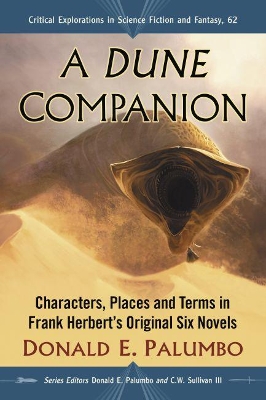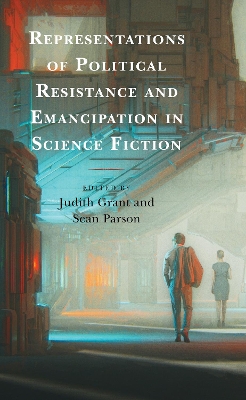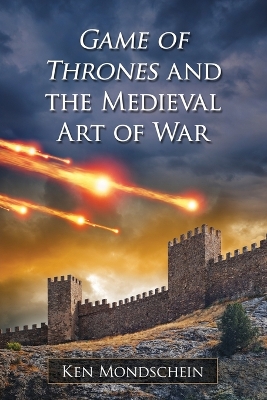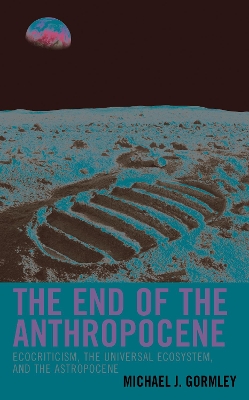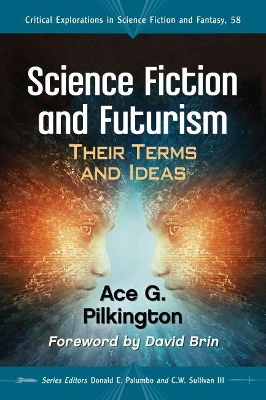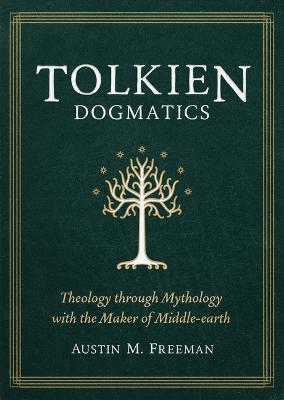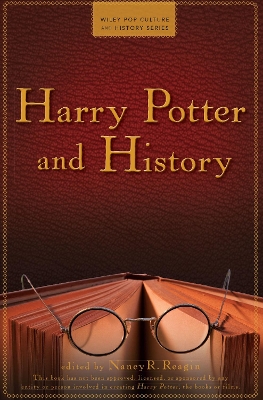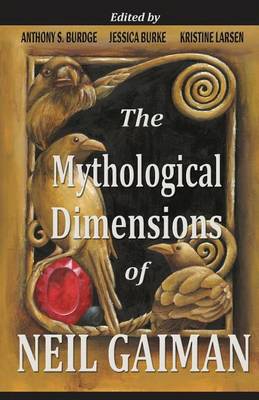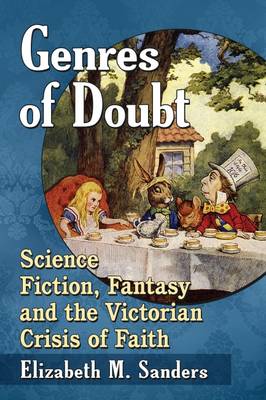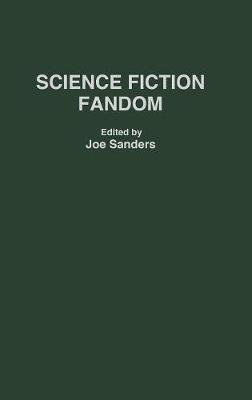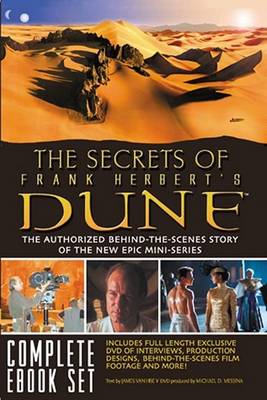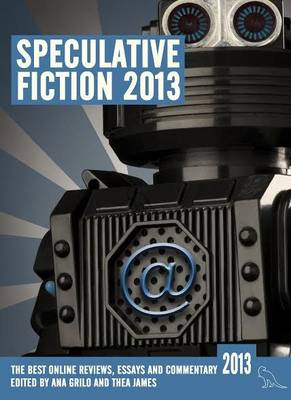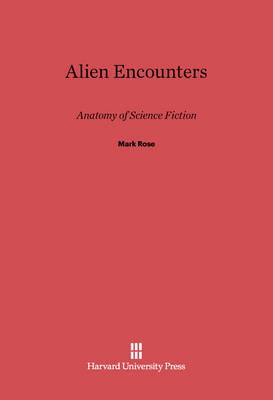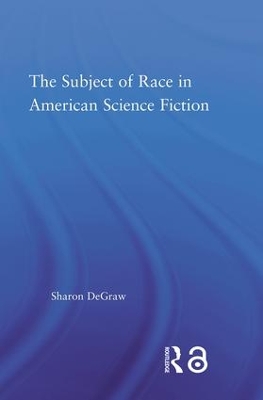A Dune Companion (Critical Explorations in Science Fiction and Fantasy)
by Donald E. Palumbo
This companion to Frank Herbert's six original Dune novels-Dune, Dune Messiah, Children of Dune, God Emperor of Dune, Heretics of Dune and Chapterhouse: Dune-provides an encyclopedia of characters, locations, terms and other elements, and highlights the series' underrated aesthetic integrity. An extensive introduction covers themes of ecology, chaos theory, concepts and structures, and Joseph Campbell's monomyth in Herbert's narrative.
Richard Matheson (1926-2013) was a prolific author and screenwriter whose career helped shape the horror and fantasy genres in literature, film, and television for over sixty years. Matheson authored more than ninety short stories and dozens of novels, many of which-including I Am Legend, A Stir of Echoes, What Dreams May Come, The Shrinking Man, Hell House, and Bid Time Return-have been adapted into feature films. Despite his extensive body of work and influence, however, Matheson has remained...
Representations of Political Resistance and Emancipation in Science Fiction
In a world in which political opportunity and liberation seem far away, the genre of science fiction grows in cultural importance and popularity. The contributors to this collection are political and social theorists from a range of disciplines who use science fiction as inspiration for new theories and examples of speculative politics. In dystopian governments, they find locations and forms of resistance. Representations of Political Resistance and Emancipation in Science Fiction explores a ran...
The success of George R.R. Martin's A Song of Ice and Fire novels and HBO's Game of Thrones series underscores the perennial popularity of medieval history-or rather ""medievalism,"" the idea of the Middle Ages. Medievalist movies, books and video games are lucrative property in the multi-billion-dollar entertainment industry, and Renaissance fairs, reenactment groups and historical martial arts clubs have become prominent in pop culture. Yet actual medieval history-especially medieval military...
The End of the Anthropocene (Ecocritical Theory and Practice)
by Michael J. Gormley
In The End of the Anthropocene, Michael J. Gormley examines literary imaginations of the anthropocene's end and the future of the astropocene. Gormley analyzes literary images of human tracks on Earth, the Moon, and Mars to characterize the late-stage anthropocene and to explore humanity's role in the universal ecosystem. The End of the Anthropocene uses a predictive and paradigmatic model of ecocriticism, examining science fiction works as interplanetary nature narratives.
The new ""Literary Movements"" series examines the most influential literary movements in history. Pulling together the people, events, and works that defined each individual movement, these A-to-Z references create a clear, vivid picture of the way literature was formed within these genres or time periods. Offering hundreds of entries, each compelling encyclopedia details writers and influences, works and characters, places, historical events, figures, terms, and much more, providing a comprehe...
J. R. R. Tolkien's The Lord of the Rings consistently tops polls as the best-loved literary work of all time. Now medieval scholar and Tolkien expert Christopher Snyder presents the most in-depth exploration yet of Tolkien's source materials for Middle-earth - from the languages, poetry and mythology of medieval Europe and ancient Greece to the halls of Oxford and the battlefields of World War I. Fuelled by the author's passion for all things Tolkien, this richly illustrated book also reveals th...
Science Fiction and Futurism (Critical Explorations in Science Fiction and Fantasy)
by Ace G. Pilkington
Science and science fiction have become inseparable-with common stories, interconnected thought experiments, and shared language. This reference book lays out that relationship and its all-but-magical terms and ideas. Those who think seriously about the future are changing the world, reshaping how we speak and how we think. This book fully covers the terms that collected, clarified and crystallized the futurists' ideas, sometimes showing them off, sometimes slowing them down, and sometimes prop...
Viaje al centro de la Tierra (Biblioteca Julio Verne, #6) (Juventud, #7)
by Julio Verne
Harry Potter and History (Wiley Pop Culture and History, #1)
by Nancy R Reagin
"A guide to the history behind the world of Harry Potter?just in time for the last Harry Potter movie, Harry Potter and the Deathly Hallows (Part II). Harry Potter lives in a world that is both magical and historical. Hogwarts pupils ride an old-fashioned steam train to school, notes are taken on parchment with quill pens, and Muggle legends come to life in the form of werewolves, witches, and magical spells. This book is the first to explore the real history in which Harry's world is rooted.....
The Mythological Dimensions of Neil Gaiman
by Jessica J Burke, Kristine Larsen, and Anthony S Burdge
The Routledge Concise History of Science Fiction (Routledge Concise Histories of Literature)
by Mark Bould and Sherryl Vint
The term 'science fiction' has an established common usage, but close examination reveals that writers, fans, editors, scholars, and publishers often use this word in different ways for different reasons. Exploring how science fiction has emerged through competing versions and the struggle to define its limits, this Concise History: provides an accessible and clear overview of the development of the genretraces the separation of sf from a broader fantastic literature and the simultaneous format...
Genres of Doubt shows how these two shifts-one literary, one cultural-were deeply intertwined. The novel as a literary form developed as a vehicle for realism, and the infusion of unreal content, be it fantasy or science fiction, created a new kind of space to ponder questions about the supernatural, humanity's place in the world, and the differences between belief and knowledge. This book investigates that space in a new way, and shows how questions of meaning, identity, and faith are in the DN...
Many prominent science fiction writers, artists, and editors began as s.f. fans. This is the first book to survey fandom's history, manifestations, and accomplishments, including clubs, fanzines, and conventions. The 24 essays are divided into sections that consider the following: the types of people who become fans and the satisfactions they receive; the development of fandom in America; fandom in Europe and the Orient; social interactions in the form of local clubs or wider-drawing conventions...
This book testifies to the growing interest in the many spaces of utopia. It intends to 'map out' on utopian and science-fiction discourses some of the new and revisionist models of spatial analysis applied in Literary and Cultural Studies in recent years. The aim of the volume is to side-step the established generic binary of utopia and dystopia or science fiction and thus to open the analysis of utopian literature to new lines of inquiry. The essays collected here propose to think of utopias n...
Ultimate Harry Potter and Philosophy (The Blackwell Philosophy and Pop Culture, #7)
A philosophical exploration of the entire seven-book Harry Potter series Harry Potter has been heralded as one of the most popular book series of all time and the philosophical nature of Harry, Hermione, and Ron's quest to rid the world of its ultimate evil is one of the many things that make this series special. The Ultimate Harry Potter and Philosophy covers all seven titles in J.K. Rowling's groundbreaking series and takes fans back to Godric's Hollow to discuss life after death, to consider...
The Subject of Race in American Science Fiction (Literary Criticism and Cultural Theory)
by Sharon DeGraw
While the connections between science fiction and race have largely been neglected by scholars, racial identity is a key element of the subjectivity constructed in American SF. In his Mars series, Edgar Rice Burroughs primarily supported essentialist constructions of racial identity, but also included a few elements of racial egalitarianism. Writing in the 1930s, George S. Schuyler revised Burroughs' normative SF triangle of white author, white audience, and white protagonist and promoted an ind...
Though science fiction is often thought of as a Western phenomenon, the genre has long had a foothold in countries as diverse as India and Mexico. These sixteen critical essays examine both the role of science fiction in the third world and the role of the third world in science fiction. Topics covered include science fiction in Bengal, the genre's portrayal of Native Americans, Mexican cyberpunk fiction, and the undercurrents of colonialism and Empire in traditional science fiction. The interse...
